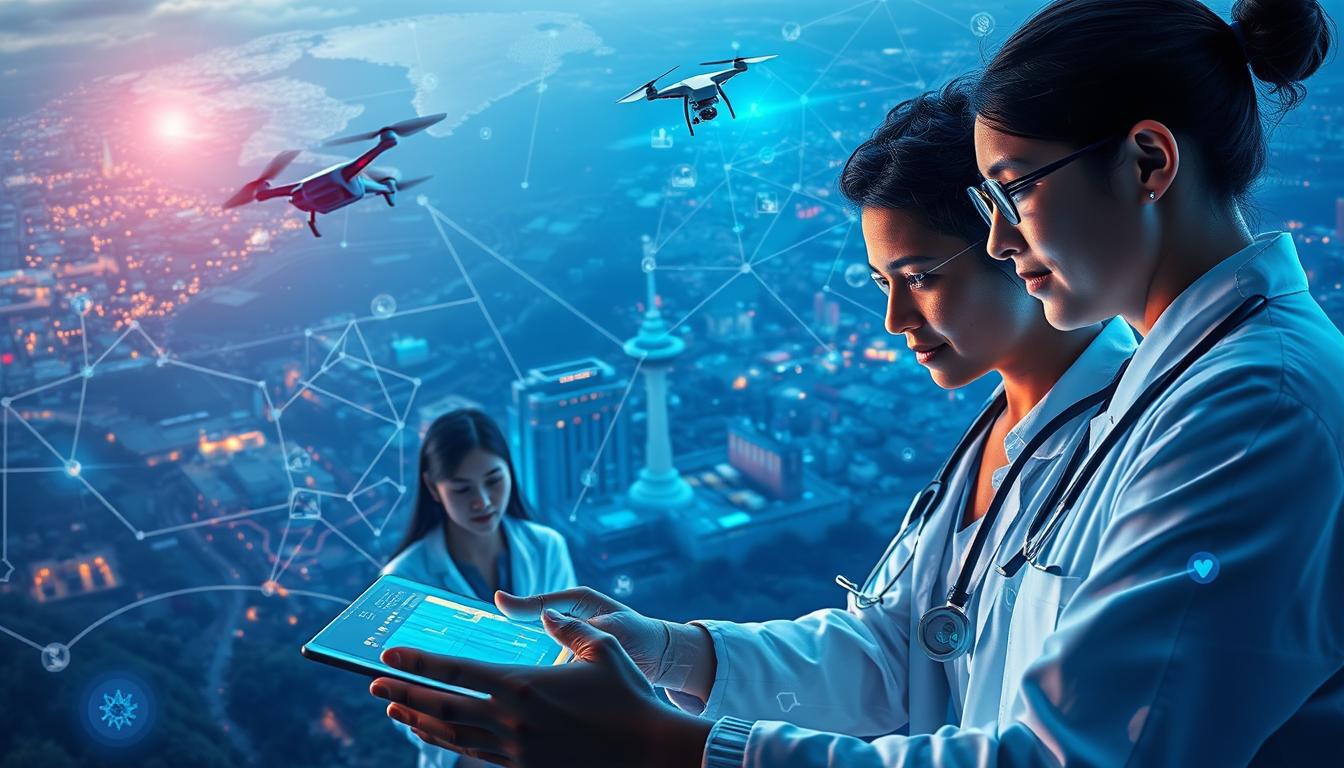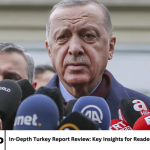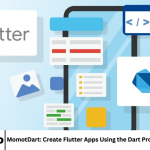Introduction
Artificial intelligence has entered the healthcare industry with transformative force, redefining how diseases are diagnosed, treated, and prevented. From predictive analytics to robotic surgeries, technology is accelerating global access to medical care and reshaping the politics of health equity.
Alongside this transformation, celebrities and global philanthropists are stepping into the conversation — investing in medical innovation, advocating for healthcare reforms, and bringing human compassion to a rapidly digitalizing system.
AI Diagnostics and the Revolution in Early Detection
AI-powered diagnostic systems are now capable of identifying diseases such as cancer, Alzheimer’s, and cardiovascular conditions faster than ever before. Machine learning algorithms trained on millions of medical images can detect microscopic anomalies invisible to the human eye.
This technology is not only enhancing clinical precision but also saving lives by enabling early detection and treatment, particularly in regions with limited medical infrastructure.
Global Health Inequality and the Role of Technology
Despite these advances, healthcare inequality remains one of humanity’s most urgent challenges. AI has the potential to close — or widen — this gap depending on how it’s deployed.
International organizations and governments are now debating policies to ensure that AI-powered healthcare tools benefit both developed and developing nations, balancing profit with accessibility.
Celebrity Philanthropy in Medical Innovation
Celebrities have emerged as key players in funding global health initiatives. Figures like Angelina Jolie, Leonardo DiCaprio, and The Weeknd have supported causes ranging from cancer research to humanitarian aid in medical crises.
Their influence has brought visibility and resources to areas often overlooked by traditional policymakers, helping merge compassion with capital to drive innovation that serves humanity as a whole.
AI and the Politics of Medical Data
Healthcare data has become the new political battleground. Governments and tech corporations are wrestling over who owns and controls patient information.
AI thrives on large datasets, but this reliance raises ethical questions about privacy and consent. The creation of international regulations for data governance has become critical to maintaining public trust in AI-powered healthcare systems.
Celebrities as Advocates for Mental Health Tech
A growing number of celebrities are championing the use of AI in mental health care. Apps powered by natural language processing and emotional recognition are being promoted as tools to provide early psychological support.
Public figures such as Selena Gomez and Dwayne “The Rock” Johnson are using their platforms to destigmatize therapy and promote digital access to mental wellness resources, merging empathy with innovation.
The Future of AI Medicine and Global Health Governance
The World Health Organization and United Nations are collaborating with tech firms to create ethical frameworks for AI in healthcare. These initiatives focus on fairness, transparency, and global equity in medical technology.
As AI becomes more integrated into medicine, the world must balance innovation with accountability, ensuring that human well-being — not profit — remains at the heart of every algorithm.
FAQs
How is AI improving global healthcare?
AI enhances diagnostics, predicts disease risks, and streamlines patient care, improving medical efficiency across the world.
Why are celebrities involved in health innovation?
Celebrities use their influence and wealth to fund medical research, raise awareness, and support global health causes.
What are the risks of AI in healthcare?
Data privacy, algorithmic bias, and unequal access remain major ethical challenges in AI-driven medicine.
Can AI help mental health patients?
Yes, AI-based apps and chatbots are offering support, therapy reminders, and emotional analysis to supplement traditional care.
How is global policy adapting to AI in medicine?
International organizations are developing ethical and legal frameworks to regulate AI’s use in healthcare globally.
Conclusion
The intersection of AI, celebrity philanthropy, and political governance is shaping a new future for global healthcare — one driven by intelligence and empathy alike. Technology may provide the tools, but it is humanity’s shared responsibility to ensure those tools heal rather than divide.
As the boundaries between innovation and ethics blur, the success of AI in medicine will depend not only on its power to save lives but on its ability to preserve human dignity and trust.







